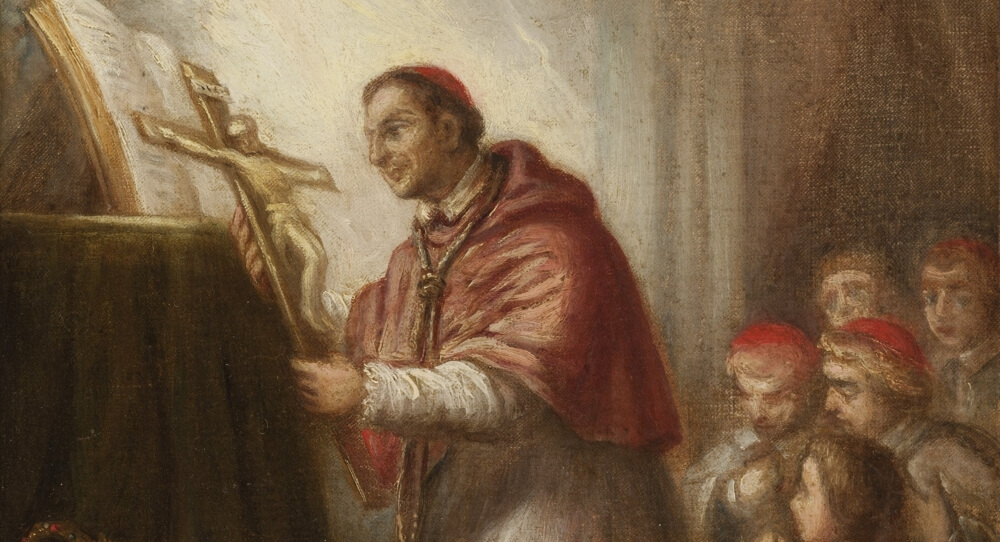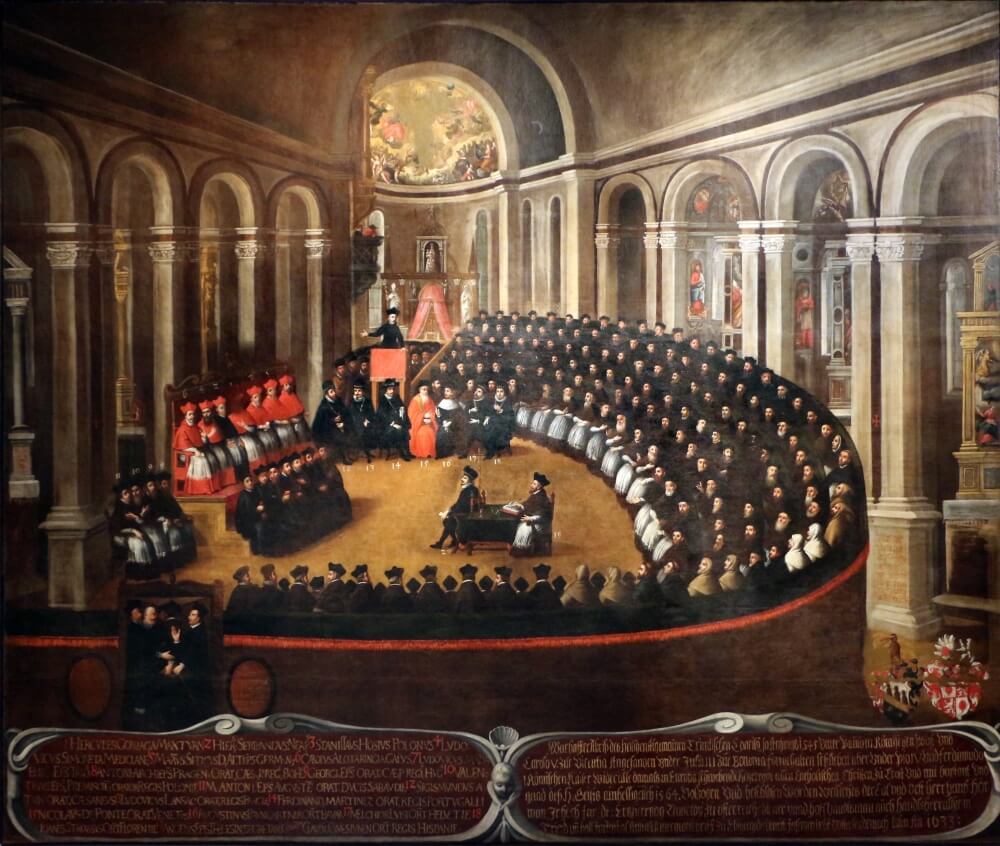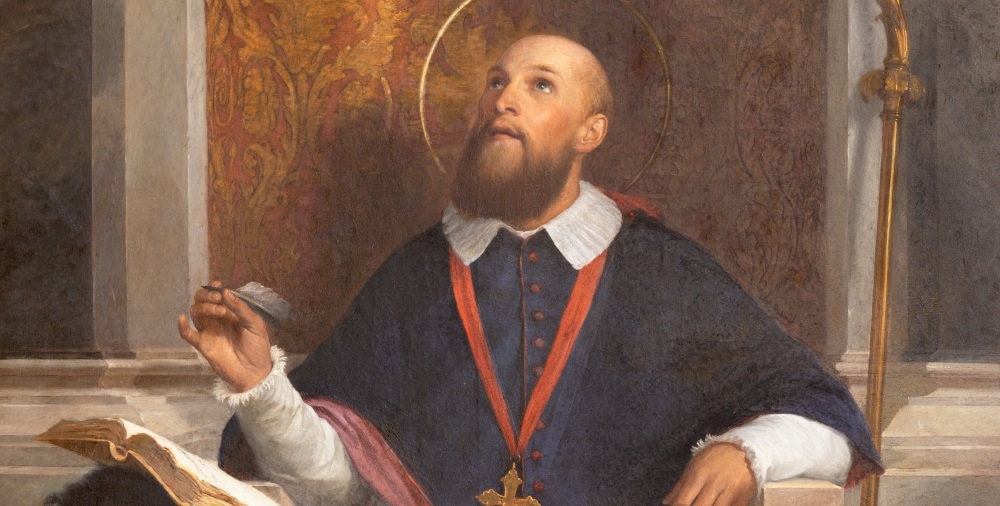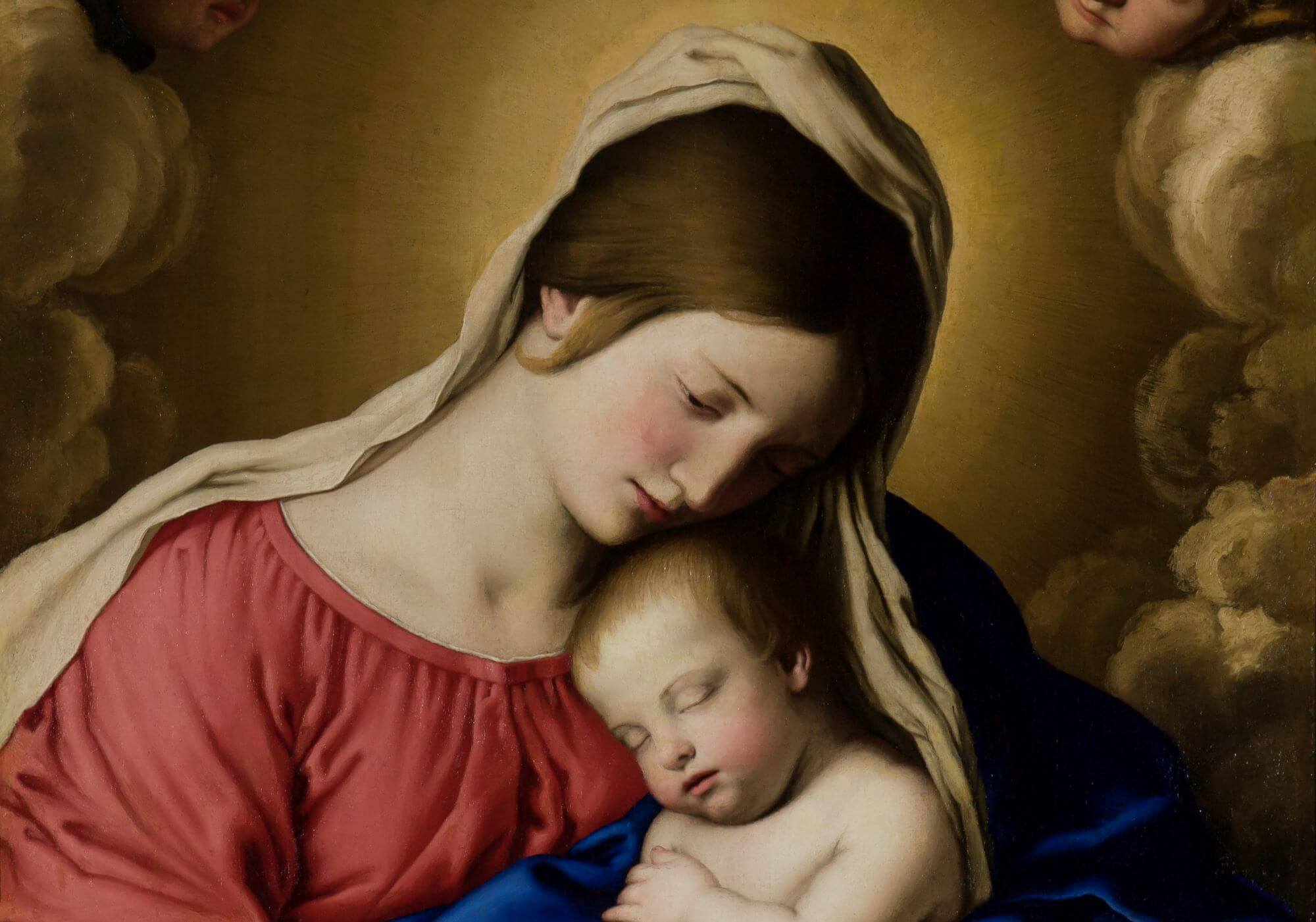
Every man is a liar.
Psalm 72:22
Humility is mentioned over 100 times in the Bible. Jesus Himself said, “Whosoever exalteth himself shall be abased; and he that humbleth himself shall be exalted” (Luke 14:11).
Humility is the antidote to pride; the greatest of the seven deadly sins.
The Catholic Encyclopedia says:
The word humility signifies lowliness or submissiveness, and it is derived from the Latin humilitas or, as St. Thomas says, from humus, i.e. the earth which is beneath us.
In this way, we can think of humility as the virtue which keeps us “grounded.”
One of the keys to humility is self-knowledge.
So often, we humans lack the desire to see ourselves as we truly are. In fact, more often than not, we have an inflated view of ourselves. Hence in the Scriptures the Psalmist cries out, every man is a liar!
However, humility is not about seeing oneself through a lens of deprecation. It is to see oneself through the lens of truth. The truly humble person is one who knows himself and acts accordingly. Humility can be seen as the habit by which we continually remember that we are imperfect and limited creatures who must submit ourselves to God as our Creator.
Humility calls us to consider our poverty before God, to remember that we can do nothing without His grace. We have sinned greatly before Him, and on our own, we are powerless against our sins, against our own flesh, against the world, and against the powers of hell. Without the saving action of Christ, we would be destitute and without hope of salvation. But humility calls us to consider the riches that God bestows upon us through His Son.
Through baptism, we have immense dignity in God’s eyes. The Father holds the same love for us—His adopted sons and daughters—that He holds for His eternally begotten Son, Jesus. Through His gift of the Holy Spirit, we can act with holiness and conquer our lesser, sinful selves. We should not despise our gifts or talents—neither should we lose sight of their source in God. We know that we are blessed and that all our blessings come from our Father in heaven. Without Him, we are nothing; with Him, we have supreme dignity. He is the giver of all good things; we are the grateful recipients. Humility is to know this truth and to live in its light.
Good Catholic series Overcoming Deadly Sin
Humility is rooted first in truth, but how do we become more humble?
The saints prescribe diligent prayer, fasting, formation, and frequent confession.
The saints also recommend humility’s sister virtue: obedience.
One saint in particular manifested humility throughout his life and stands as an example of what it means to be humble: St. Charles Borromeo.
The Life of St. Charles Borromeo
St. Charles Borromeo (1538–1584) was born into a noble family in Lombardy, Italy. His father was a count and his mother belonged to the famed House of Medici. His parents were good and virtuous, so that Charles learned to be devoted to God from an early age.
In his day, the rich and powerful nobles held high positions in the Church and handed their benefices down within the family. At the age of twelve Charles inherited from his uncle the benefice (that is, the property and income) of a wealthy abbey. Charles accepted the honor and, in an early show of humility that would distinguish his character later in life, gave almost all of its revenue to the poor, keeping only the most meager amount for his own needs.
Although Charles showed these early signs of humility, he nevertheless had great pride in the honor and prestige of his ancient family lineage, which were displayed throughout his grand family palaces.
When his father died, Charles took on the responsibilities of the family line at the request of his older brother, which made him a Count and the ruler of a duchy. Although Charles was “a good and practical Catholic,” he was also “a haughty noble, proud of his ancient name.” He was greatly pleased when his uncle, a cardinal, became Pope Pius IV, knowing that this would bring the Borromeo family even greater favor and privilege. His uncle the Pope soon gave him the dignity of more benefices and greater responsibilities.
…Count Charles was overwhelmed with honour and wealth, and the wonder is, not that their splendour dazzled his eyes, but that he did not sink hopelessly beneath their weight, and become an arrogant, self-sufficient priest or clergyman…though he apparently led a life of ostentation and luxury…he spent considerable time in prayer and meditation…assisted at Holy Mass, and frequently received the Sacraments of Penance and the Eucharist.
Louise M. Stacpoole Kenny
Gradually Charles’s work inspired him with a greater love for God’s honor than for the honor of his noble family, and he began to desire to enter the priesthood.
This desire became stronger upon the death of his older brother, which left him the sole heir of the Borromeo family’s ancient and grand estates. As the only remaining heir, Charles was pressured to marry to continue the Borromeo lineage. But he could not be persuaded—his brother’s sudden death had a powerful impact on him. It convinced him of the vanity of the world and all its grandeur, including that which belonged to his great family.
The Pope was displeased that Charles had chosen to leave his ancient family without an heir, cutting off their future forever. Charles replied in all humility, “Do not be angry with me, Holy Father, for at last I am wedded to the Spouse I have long and ardently desired.” Charles then took on a spiritual director who helped him lead a holier life; in particular, “to curb the intense pride that was the keynote of Charles’s character.”
Soon the Holy Father consecrated Charles as a bishop. Charles’s greatest deed in service to the Church as bishop was to urge his uncle to reopen and continue the work of the Council of Trent, which had been paused 10 years earlier and never resumed. This holy Council became instrumental in responding to the turmoil of the Protestant Revolt. It was long and difficult work fraught with many obstacles and setbacks, but under Charles’s leadership, the Council was brilliantly successful. It clarified and upheld Church teaching on all the doctrinal points contested by the heretics, bringing new life and energy into the decimated Church.

photo credit: Sailko/CC BY-SA 4.0
When the Council concluded successfully, its reforms needed to be implemented throughout the Church, which was the most difficult task of all. Charles again led the way. He assisted with the production of the Catechism of the Council of Trent, with revisions of the Roman Breviary and the Missal, and with the reform of Church music.
During this time his pride began to melt and his humility increased, which poured itself out in charity to his neighbor. He also began to live a life of greater austerity. He dismissed most of his personal staff except those who were absolutely necessary, ate simple foods, and removed all personal luxuries.
Charles was soon appointed the Archbishop of Milan, a position of high influence in the Church. The diocese was one of Italy’s largest—yet there had not been a resident archbishop in 80 years, which had left the diocese dilapidated. Priests, ignorant in matters of doctrine, led undisciplined and even scandalous lives. The people were not receiving the sacraments regularly; they led immoral lives, and fell into heresy.
The incredible work Charles undertook in reforming his diocese from top to bottom has made him a model bishop for future generations. His first task was to educate and train the clergy and reform their spiritual lives. He established colleges and seminaries, replacing scandalous priests with holy ones. He recruited intelligent and capable laymen to assist him in his reforms. His preaching lifted people out of spiritual lethargy and encouraged them to lead holy lives. He brought religious discipline back to the monasteries. He ended all liturgical abuses and brought greater reverence and dignity to the Church’s liturgy. He restored dilapidated churches and built new ones, adorning them beautifully for the greater glory of God. He ensured that the altars and the sacred vessels were made of proper materials and expertly crafted. He opened schools for children and made sure they were properly catechized by starting the first “Sunday schools,” which by his death were teaching over 40,000 children. He opened hospitals and orphanages to serve the sick and poor. Charles paid close attention to the needs of his household servants, even the most lowly, to ensure that they were all well cared for.
He also continued to reform his own life in order to lead by example. He practiced many austerities in secret for the sake of humility: for example, beneath his lovely episcopal garments he wore a rough hairshirt next to his skin, and removed only the soles of his shoes so that he could walk barefoot without letting others know that he did.
The Milanese people loved their holy archbishop, and their faith and devotion greatly increased. The cathedral, once deserted, was now filled with souls worshipping God. Charles traveled to every corner of his diocese twice a year and visited the various churches in Milan on a daily basis. His friends were concerned that he would work himself to death. Charles humbly replied, “If it is God’s will that I should consume myself in His service, He will give to His Church a worthier pastor than Borromeo.”

photo credit: Ealdgyth/CC BY-SA 3.0
In 1576 Milan was ravaged by the plague. Many of the city’s leaders fled the city in fear, while Charles stayed to assist the sick and dying. He used his wealth to feed 60,000 people a day, which sent him into debt. He visited homes and hospitals to bring the sacraments and consolation to suffering souls. Not even his priests would accompany him in this holy work out of fear of the deadly disease. Charles urged the people to humble themselves before God and do penance so that God would have mercy on them. He led by example; he walked in penitential processions through the streets with bare feet and a noose tied around his neck. For those who were too sick to come to Mass, he brought Mass to them. He set up makeshift altars in the streets so they could assist at the Holy Sacrifice from the windows of their homes. He also recruited priests to hear confessions at their doorsteps.
Charles had a rich spiritual life of deep humility. He never accepted praise or flattery, and was submissive to receiving correction from others, even inviting others to point out his faults. He was very aware of his sins and shortcomings, so that he went to confession each morning before saying his first Mass of the day. Sometimes he spent whole nights in prayer in the churches, always on his knees, begging for light to pursue his reforms in the best manner. He knew his reforms were not done on his own strength and said frequently, “Souls have to be gained on the knees.”
Charles’s humility continued to the last moment of his life. At the hour of his death, worn out from his labors at the young age of 46, he directed his priests to dress him in sackcloth and ashes.
Let’s consider a few more important points that St. Charles Borromeo teaches us about the virtue of humility.
Humility Respects the Dignity of God
Charles was humble in regard to his own person, but he used the full dignity and power of his office as archbishop when it came to the honor of God and His Church. He did not hesitate to imprison or excommunicate guilty men under Church law. He kept a clear line between Charles the man—who was a sinner—and Charles the bishop, who had a duty to protect his flock. He firmly opposed anyone who obstructed his holy work, without regard for his own popularity. He once said, “I wish you to understand that on such occasions the principal thing is to do what one considers right and to be perfectly indifferent to the world’s opinions.”
Humility is About Complete Trust in God
The key to humility is a complete and trusting submissiveness to the will of God in every circumstance that comes to us. Charles wrote to one of his friends:
I really do not know whether I have more faith than you, but always feel that one must place all one’s confidence in God. I…am certain that the less help and support we receive from men, the more certain we are of heavenly consolation and assistance. God always takes greatest care of those who are forsaken by men, and He manifests to them on these occasions in fullest measure His infinite goodness and mercy.
St. Charles Borromeo
How to Put Humility into Practice
St. Charles Borromeo practiced heroic charity, although he had every temptation to continue living a proud and haughty life supported by his wealth and prestige. He abandoned everything to God, and humbly submitted himself as a shepherd of souls.
How can we begin to practice this virtue in our own life?
Our Lord tells us Himself: “Take my yoke upon you, and learn from me; for I am gentle and humble in heart, and you will find rest for your souls” (Matthew 11:29). We can learn the ways of holy humility by reading the life of Jesus in the Gospels and prayerfully meditating on all that He subjected Himself to in His dealings with men, even though He was God. In the same way, we can meditate on the life of Our Lady and how she submitted with perfect humility to the great trials God prepared for her as the co-redeemer of the human family.
The example of Jesus and Mary will help us find small ways to lower our high opinion of ourselves. For example, we can make an effort to notice the good qualities of others and be inspired by them, instead of focusing on and being annoyed by their defects. We can also serve others in ways that we are inclined to think “beneath” us, for example, in doing the worst, dirtiest, or most humbling tasks that revolt us. Perhaps most importantly, we can accept the little daily humiliations we receive from others that wound our pride; instead of soothing our pain, we can ask God to use the sting to kill the pride in our hearts.
As fallen human creatures, we have a tendency to lose sight of our own limits and defects; we try to assert our will over others as though we were better. Humility is the virtue that helps us think and behave within the boundaries that are appropriate to us.
The virtue of humility (which keeps us in a lowly place) and the virtue of magnanimity (which helps us do great things) are not in opposition to one another. They must exist at the same time, because the person who is called to do great things must at the same time be humble about it, recognizing that it is not his own strength, but rather God’s strength, that makes him capable of doing what he is called to do. Aquinas makes the important distinction that “Humility restrains the appetite from aiming at great things against right reason: while magnanimity urges the mind to great things in accord with right reason.”
It is contrary to humility to aim at greater things through confiding in one’s own powers: but to aim at greater things through confidence in God’s help, is not contrary to humility; especially since the more one subjects oneself to God, the more is one exalted in God’s sight.
St. Thomas Aquinas
St. Charles Borromeo, pray for us!








